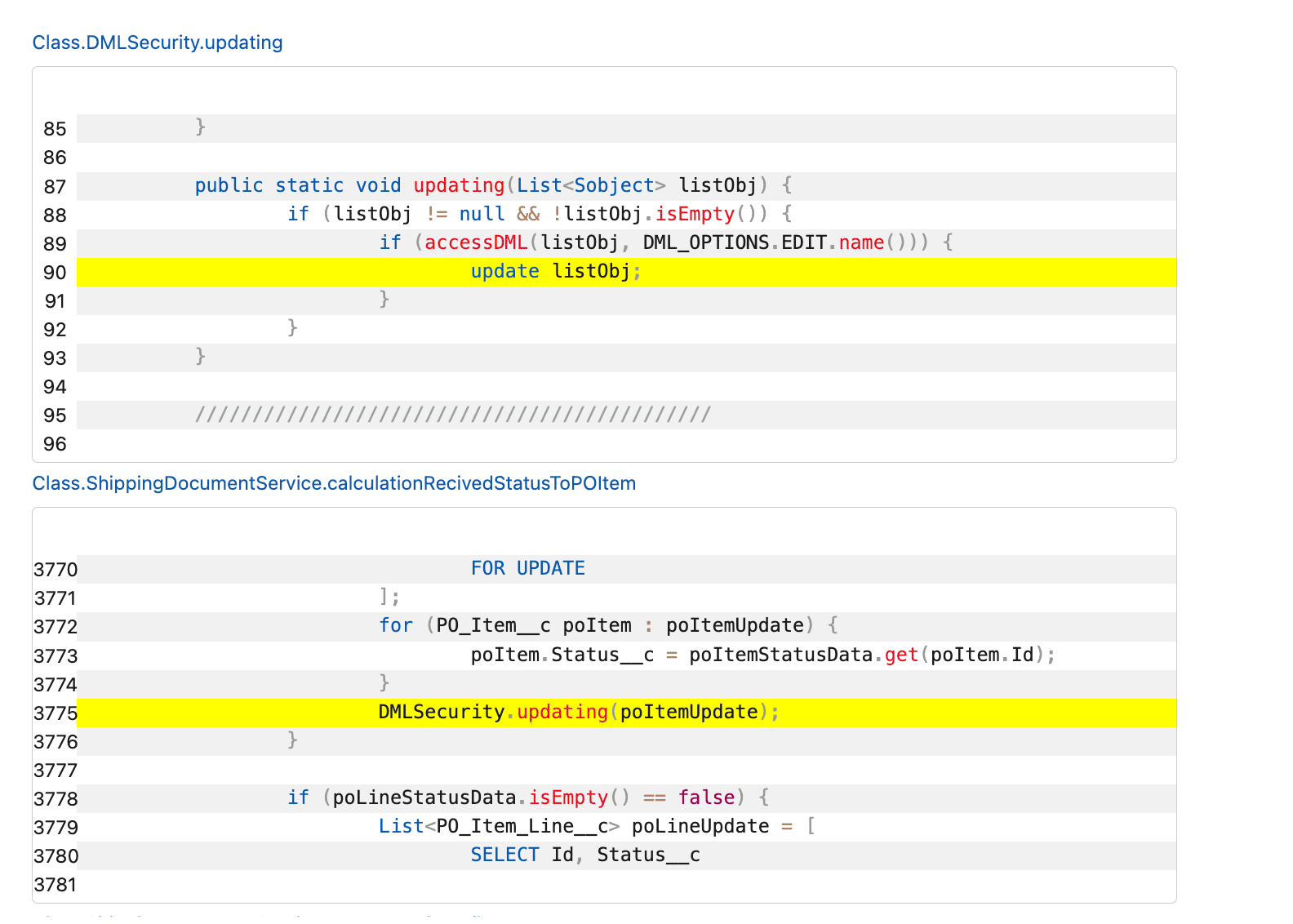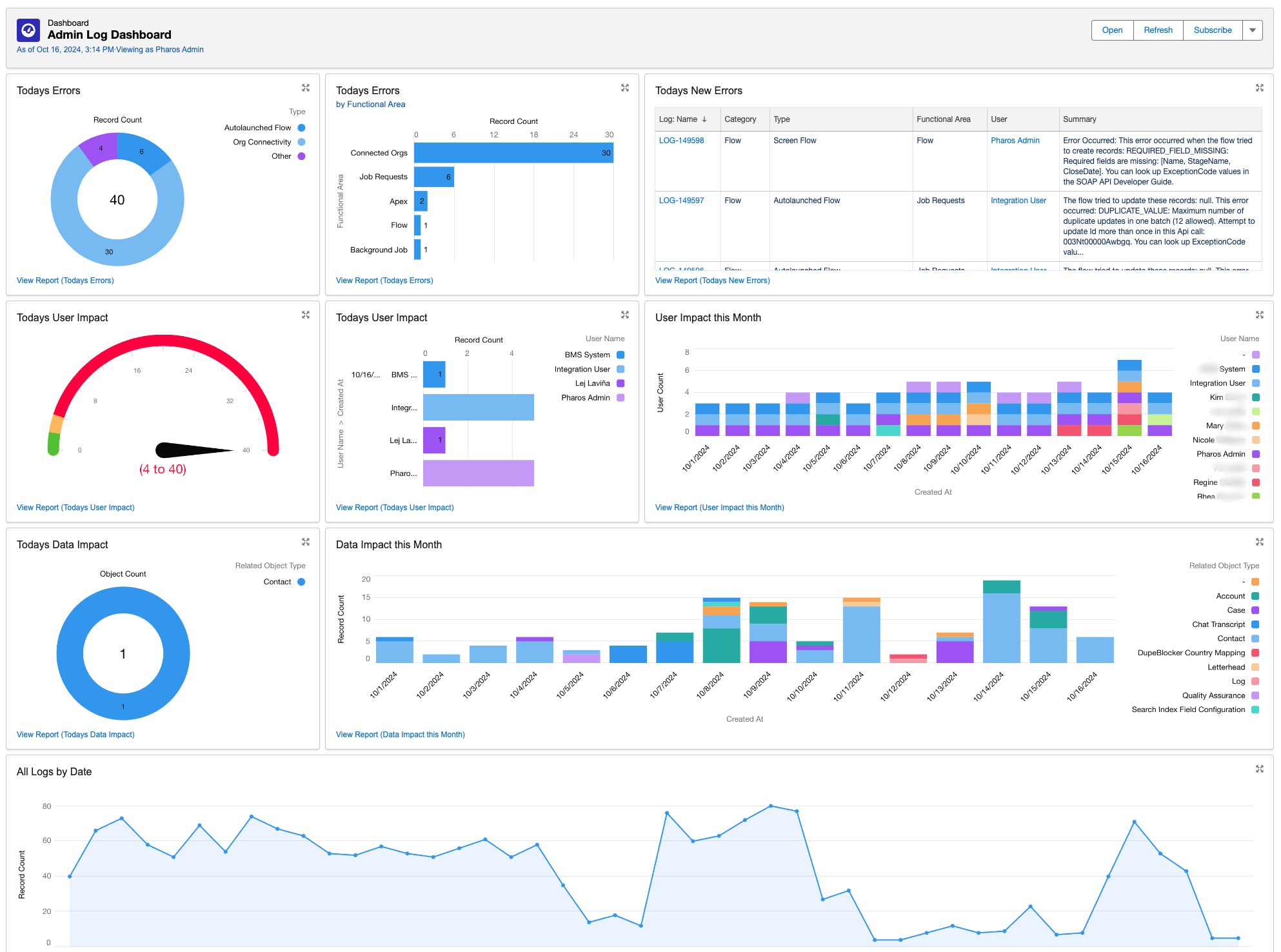Executive Summary
FanDuel, the leading sports-tech entertainment company, serves millions of customers daily across fantasy sports, sports betting, and online gaming. Before Pharos AI, maintaining its complex Salesforce implementation was a significant challenge. During peak events like the Super Bowl, with its hundreds of thousands of interactions, even minor system errors had the potential to turn into major business disruptions.
Using Pharos AI's native observability platform, FanDuel transformed its approach from reactive troubleshooting to proactive prevention, dramatically reducing resolution times from days to just minutes, while enabling their small team to support massive scale operations with confidence.
With observability in place, FanDuel is able to catch and resolve critical issues before they impact customers. The company has also accelerated new team member onboarding from months to just days, and has been able to free up valuable engineering resources to focus on innovation rather than firefighting.
"We catch problems first, which means we don't get a bunch of reports clogging up the prod support channel," says Rachael Morales, FanDuel's Salesforce Engineering Manager. "It also helps our team look really nice, because we know we aren't waiting for people to say, 'hey, this new thing isn't working!' We see it right away and fix it."
Company Background
Founded in 2009, FanDuel has evolved from a daily fantasy sports pioneer into a comprehensive sports-tech entertainment powerhouse. The company operates multiple platforms including sports betting, online casino games, and horse racing betting, serving millions of active users across North America. During major sporting events, FanDuel processes hundreds of thousands of customer support interactions, making system reliability absolutely critical to business success.

FanDuel's technical infrastructure relies heavily on Salesforce, which powers everything from customer support operations to internal business processes. The platform supports over 1,000 internal users and handles massive spikes in activity during tent-pole sporting events. Rachael Morales leads the Salesforce engineering team as Software Engineer Manager, while Aishani Kasturi manages the QA testing operations. Both report that FanDuel's Salesforce implementation is notably complex, with intricate automations, custom integrations, and sophisticated business processes that mirror the company's rapid growth and innovation.
When FanDuel migrated from Zendesk to Salesforce, the team recognized they needed more than standard debugging tools to maintain their enterprise-grade environment. "Standing up a big enterprise environment for Salesforce is definitely a big one," explains Morales. "We were also a really small team. Having logs accessible to us right from the start—it's huge as an admin if you're looking for bugs."
A Multitude of Challenges
Before implementing Pharos AI, FanDuel faced the classic challenges that affect many enterprise Salesforce implementations, but amplified by their scale and the mission-critical nature of their operations. The issues fell into several interconnected categories that created a cascade of operational inefficiencies.
Time-Consuming Debugging Processes
Traditional Salesforce debugging required extensive back-and-forth communication with end users. When issues arose, the team had to spend considerable time asking for screenshots, videos, and step-by-step reproduction instructions. "You have to spend time going back and forth, asking them questions about, like, 'Hey, can you send me a video of what you were doing?' or trying to even just gain steps towards getting to be able to reproduce it," recalls Morales. "Then you might have to run a debug log on somebody to get the true error that's occurring."
Coordination Bottlenecks
The debugging process often stretched across a week due to scheduling conflicts and availability issues. "It really could take days," confirms Morales. "Because if somebody writes to us on a Friday at 8pm and no one's online to look at it... And then when we are back online on Monday and they're not, or they go on vacation, it could last a long time." Aishani Kasturi adds, "A lot of times, our agent supervisors are the ones raising those bug tickets, and sometimes the agent is offline that day, or they're not on call that day. So then you have to wait for them to come back online."
Overwhelming Ticket Volume
Individual system errors often generated multiple duplicate bug reports, overwhelming the small team's capacity. "If we release something and it did have a bug in it, you could get 10 different people reporting the same issue," explains Morales. This created a domino effect where the entire production support team became consumed with managing redundant tickets rather than solving the underlying problem.
Critical System Errors
FanDuel experienced a particularly challenging lock row error that exemplified their broader issues. Multiple flows were attempting similar updates simultaneously, causing system conflicts that impacted both customer-facing operations and internal processes. "It would cause errors with some of the customers that were chatting in with customer support. It was also causing errors just in processes that were supposed to be doing automatic updates," Morales explains. The cascading effects cluttered their JIRA board so extensively that other important issues became invisible.
Reactive Rather Than Proactive Operations
Perhaps most critically, the team was operating in purely reactive mode. They could only address issues after they were reported, meaning customer impact had already occurred. There was no visibility into potential problems brewing in the system or systematic way to prevent issues from reaching production.
The Solutions
FanDuel's relationship with Pharos AI began early on, but the decision to implement the platform was driven by clear technical needs. "Ruby [Kandah, the VP of AI, Automation and Insights at FanDuel] was the one who showed it to us," recalls Kasturi. "And yes, it was there pretty much from the beginning" of their Salesforce implementation.
Comprehensive Error Visibility
Pharos AI provides native end-to-end automated troubleshooting with real-time monitoring of Apex, Flow, and Process Builder exception logs, giving FanDuel complete visibility across their entire Salesforce platform. The solution captures every error automatically, eliminating the need to sift through exception emails or manually run debug logs on users.
Intelligent Issue Grouping
Rather than treating each error as an isolated incident, Pharos AI groups related errors into coherent issues, providing FanDuel with a clear understanding of systemic problems. This capability proved immediately valuable in resolving their lock row error.
"When we were able to dive into Pharos and see what the exact error was, it was huge to be able to know and link them all together very quickly to solve that one big issue, rather than spend time on all these individual reports that people were submitting," explains Morales.
Visual Flow Debugging
One of Pharos AI's most appreciated features is its visual representation of flow execution, showing exactly where errors occur within Salesforce flows.

"Instead of just looking at a debug log, which is just like a bunch of lines of text, Pharos has a feature where it shows you the flow elements graphically and where exactly the error occurred in the flow," says Morales. "When we see the visual of where exactly the flow error occurred, we can just open up that element and address the problem instantly."
Real-Time Slack Integration
FanDuel configured Pharos AI to send alerts to dedicated Slack channels, enabling immediate response to new errors.
Morales set up separate channels for different environments: "We have alerts for whatever the case may be. And then I hooked that up to our JIRA integration from Slack. So we can create tickets right from there."
Custom Logging with Triton
FanDuel implemented Pharos Triton for enhanced custom logging around API integrations.
"With the custom logging, we can set it up so we get exactly what the error code is, which makes things much easier to troubleshoot," explains Kasturi.
Multi-Environment Coverage
The platform monitors both production and sandbox environments, enabling FanDuel to catch issues during QA testing before they reach end users. "It’s set up in our sandbox environment, notes Kasturi about their comprehensive monitoring approach, “so when we catch something in the sandbox, we can take care of it right away. This has made our releases cleaner and has reduced the risk of interruptions to our users."
Results and Outcomes
The implementation of Pharos AI delivered transformative results across multiple dimensions of FanDuel's operations, from immediate tactical improvements to strategic business advantages.
Dramatic Time Savings
The most immediate impact was the elimination of lengthy debugging cycles. "Really cuts down the most time right there," explains Morales. "I can go to Pharos and I can find a log where the running user was Aishani, and I can find the issue very quickly. Pharos has the Debug Log already right there for me. I don't have to spend any back and forth time saying, 'Hey, can you re-trigger this so I can capture a log?'"
Proactive Issue Detection
FanDuel transformed from reactive to proactive operations. "Instead of just being fully reactive to things that people are reporting, we can also use Pharos to see other errors that maybe somebody might not necessarily have ever reported. And we can be a lot more proactive about the system too," says Morales. This shift enables the team to address potential issues before they impact end users.
Reduced Deployment Risk
The real-time alerting system has revolutionized FanDuel's deployment process. "Every time we have an error, that's priority one," confirms Morales. "It's really nice now, because when we release something new, we catch it first, and we don't get a bunch of reports into the prod support channel." Kasturi adds, "Just last week we had a deployment, and the errors were logged into the Slack channel, and we knew right away to go and take a look at that flow. We caught it first, even before the SA was able to look at it, or even before the business knew that we had deployed it."
Improved Team Efficiency
By eliminating duplicate issue reporting, FanDuel's team can focus on solving actual problems rather than managing redundant tickets. "Now with Pharos, it's like, this is the problem. Here's the log, and we can just get started, and we don't have to do all this extra JIRA management," explains Morales. "Truly, it can just be one person needed to fix the bug. Then everybody else in my team can just focus on business as usual."
Enhanced Quality Assurance
The platform's visibility into sandbox environments has strengthened FanDuel's QA processes. "For example, one of the most frequent bugs we catch is access issues," explains Kasturi. "Let's say you create a flow that has an Apex class in it, and then you test as that profile, that user profile, and then it doesn't work. And it all comes down to that profile not having access. And that's clearly seen in Pharos." These issues are resolved before reaching production, with deployment notes ensuring proper access configuration.
Accelerated Onboarding
New team members become productive much faster with Pharos AI's intuitive interface. "I have a new person on my team. She's only been here for maybe a month and a half," reports Morales. "She's commented how helpful Pharos is... she's like a fully functioning member of my team. That's pretty quick training." Kasturi echoes this experience: "I have a new hire too, and it's only been two weeks, and he's already been able to resolve bugs in flows while configuring those flows, because of Pharos."
Innovation Enablement
With less time spent on reactive troubleshooting, FanDuel's team can invest in strategic initiatives. "It also gives us time to help out with custom project work as well. So that's the innovation piece—we get to be part of those teams building new custom features," explains Morales.
Business Confidence
The improved reliability and faster issue resolution have enhanced FanDuel's reputation with internal stakeholders. "It helps our team look really nice, because we know we aren't waiting for people to say, hey, this new thing isn't working. We see it right away and fix it," notes Morales.
Some FanDuel Takeaways
FanDuel's experience with Pharos AI reveals several critical insights for organizations managing complex Salesforce implementations at scale.
Observability Trumps Logging
Traditional approaches focus on collecting logs, but FanDuel discovered that true observability—understanding the broader context and patterns—provides far greater value. Efficiency is one of the most important benefits. The platform's ability to group errors into issues and provide visual context through dashboards transforms what would be the raw data of logs into a view that provides actionable insights. "When we are deploying things that don't have a lot of bugs that need to get fixed, then we produce more projects," explains Morales.

Proactive Beats Reactive
The shift from reactive troubleshooting to proactive monitoring fundamentally changed FanDuel's operational posture. By catching issues before they impact users, the team not only improves customer experience but also preserves their capacity for strategic work. "We can be a lot more proactive about the system too," notes Morales, highlighting how this approach scales team effectiveness.
Visual Context Accelerates Learning
The platform's visual representation of flow execution proved particularly valuable for onboarding new team members and improving overall productivity. "The visual picture of the flow makes it very useful," confirms Kasturi. This visual approach reduces the learning curve and helps team members of all experience levels contribute more quickly.
Integration Amplifies Value
FanDuel's integration of Pharos AI with Slack and JIRA created seamless workflows that amplify the platform's impact. "I hooked that up to our JIRA integration from Slack. So then we create tickets right from there," explains Morales. These integrations ensure that insights translate directly into action.
Small Teams Can Support Large Scale
Perhaps most importantly, FanDuel demonstrated that with the right observability tools, small teams can effectively support enterprise-scale operations. During peak events processing hundreds of thousands of interactions, their lean team maintains system reliability and customer satisfaction.
The experience also highlighted the importance of early implementation. "We had Pharos pretty much right away," notes the team, and this early adoption enabled them to build effective practices from the foundation rather than retrofitting solutions onto existing problems.
Recommendations
Based on FanDuel's experience, organizations evaluating Salesforce observability solutions should consider several key factors and next steps.
- For Organizations Considering Pharos AI: FanDuel's advice is unequivocal. "They should get Pharos, because it definitely reduces the amount of time spent in resolving bugs," states Kasturi emphatically. "It makes you, from an admin or developer perspective, very efficient, productive, and saves you so much time in your day to day." The platform's value extends beyond individual productivity to team dynamics and business operations.
- Implementation Best Practices: FanDuel's success stems partly from their comprehensive approach to implementation. Complex organizations should consider multi-environment monitoring (production and sandbox), integration with existing workflow tools like Slack and JIRA, and early inclusion in onboarding processes. "In my onboarding doc, one of the first tools that I introduce them to is Pharos," explains Kasturi.
- Focus on Business Impact: While the technical benefits are clear, organizations should also consider the broader business implications. Improved system reliability, faster issue resolution, and enhanced team productivity translate directly to customer satisfaction and competitive advantage. In FanDuel's competitive market, system downtime or poor customer experience can have immediate business consequences.
- Plan for Scale: Organizations anticipating growth should implement observability solutions early. FanDuel's ability to handle massive event-driven traffic spikes while maintaining small team sizes demonstrates how proper tooling enables scalability without proportional increases in support overhead.
- Embrace Proactive Operations: The most significant transformation involves shifting from reactive to proactive operations. Organizations should leverage observability platforms not just for troubleshooting, but for preventing issues and enabling innovation. "We can also use Pharos to see other errors that maybe somebody might not necessarily have ever reported," notes Morales, highlighting the platform's strategic value.
For organizations ready to transform their Salesforce operations, FanDuel's experience provides a clear roadmap. The combination of comprehensive error visibility, intelligent issue grouping, visual debugging tools, and seamless integrations creates a foundation for reliable, scalable operations that support both current needs and future growth.
Says Morales, "Anyone new that's joined my team that's like a seasoned admin from a different company, they’re like, 'Wow, this tool is amazing. This saves me so much time from my past companies where I had to run a debug log.' It's a habit now to just go to Pharos."
Ready to transform your Salesforce operations like FanDuel? Learn how native observability can eliminate reactive troubleshooting, accelerate team productivity, and protect your business from costly system disruptions. Request a demo or install a free trial and see how leading organizations are leveraging observability to better manage their Salesforce orgs.













